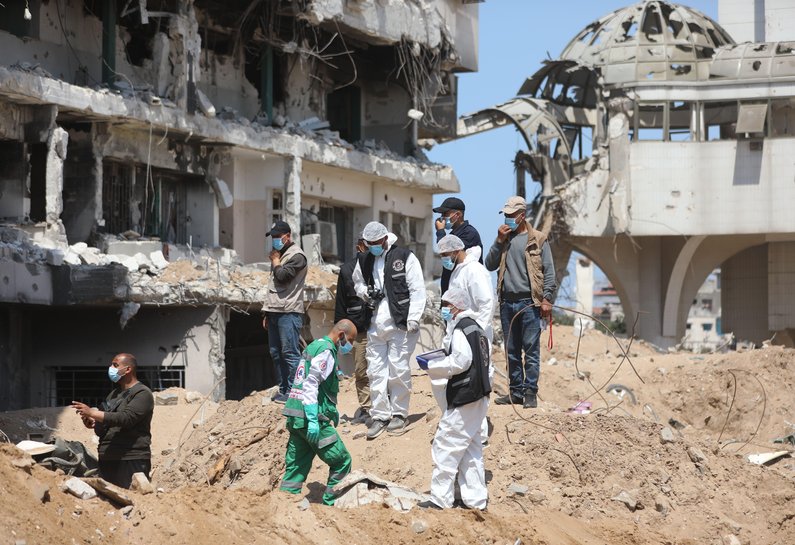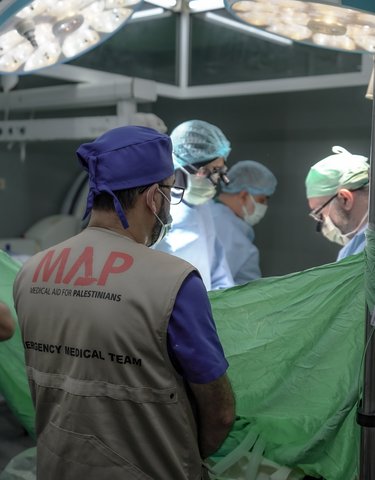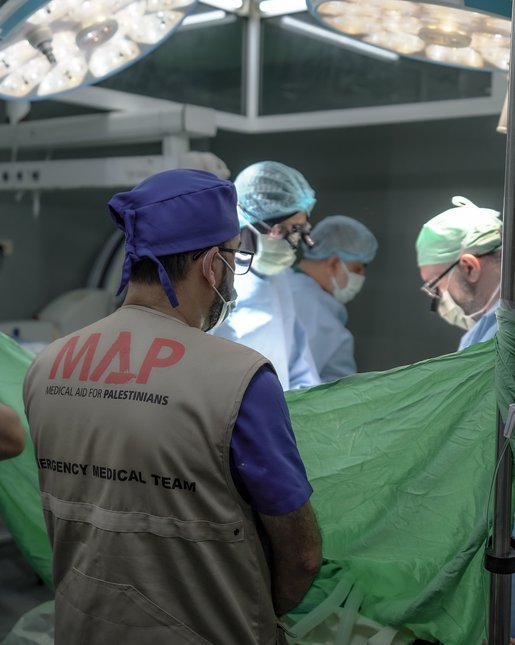A month after mass graves discovered at Gaza hospitals, international investigations and accountability are essential

Credible testimony from hospital staff and other eyewitnesses shared with MAP after the withdrawal of the Israeli military from these sites and the subsequent discovery of the mass graves, raises concerns that serious violations of international law were committed at these hospitals – including potential war crimes – which require time-sensitive forensic investigation and documentation. MAP has urged third states to press for independent investigators to be granted immediate access to Gaza, so that evidence can be preserved and accountability pursued wherever wrongdoing is identified.
At the Nasser Hospital in Khan Younis, the Palestinian Civil Defense recovered 392 bodies, including those of women, children, the elderly and injured people, from at least three mass graves. The discovery of these mass graves followed a weeks-long siege and military raid by Israeli forces, which forced Nasser hospital out of service.
The head of Nasser Hospital, Dr Atef Hout told MAP in April: “During the weeks of Israeli siege and attacks on the hospital, we were forced to bury around 250 bodies, mainly patients who died from lack of medical treatment, or people killed by Israeli fire. However, the Israeli army opened the graves and abducted 80 bodies which they claimed they needed to check for hostages, and later returned the bodies through the Rafah crossing to Najjar Hospital.” This leaves many bodies unaccounted for, beyond those known to have been buried at the site by hospital staff. “This needs an immediate investigation, before it is too late,” said Dr Atef.
Palestinian Civil Defense teams reported on 25 April that 227 bodies found at Nasser remained unidentified, including due to mutilation or significant decomposition, adding that there were “signs of field executions”. The head of the Palestinian Civil Defense told MAP that some bodies were found decapitated, while others showed signs of being buried alive. The UN has reported that some of the bodies “were found with their hands… tied and stripped of their clothes.”
Hospital staff also raised with MAP directly their concern that the unaccounted-for dead include people who were killed in extrajudicial executions. Under international law, torture and cruel, inhuman or degrading treatment and extrajudicial executions are absolutely prohibited and may constitute war crimes.
Similarly, after a two-week-long invasion and siege by the Israeli military, at least three mass graves were reported at the Shifa Hospital in Gaza City, with at least 79 bodies found by the Civil Defense. Witnesses who visited the site soon after the Israeli military’s withdrawal reported to MAP seeing piles of clothes in the hospital courtyard, and exhumed bodies that had been badly disfigured, and in some cases zip-tied and therefore potentially restrained when they died, again raising concerns that extrajudicial executions were committed.
MAP’s Director of Advocacy and Campaigns, Rohan Talbot, said: “Israel has attacked nearly every hospital in Gaza. Hundreds of health workers and patients have been killed and detained. The discovery of mass graves in two hospitals further demonstrates that the protected status healthcare in Gaza under international law has totally failed, with harrowing results.”
“The families of the dead deserve to know the truth of what happened to their loved ones, and to have justice wherever serious violations of international law have occurred. This can only be achieved through thorough, prompt and impartial investigations. The international community must therefore demand access to Gaza for independent investigators and forensic experts, so that evidence can be preserved and accountability pursued.”
MAP welcomes the UN Security Council’s call on 10 May for investigators to be allowed unimpeded access to conduct “immediate, independent, thorough, comprehensive, transparent and impartial investigations”, but notes that no meaningful progress appears to have been made towards this.
MAP further notes that Israeli authorities have demonstrated a repeated failure to pursue genuine investigations and ensure accountability for potential serious violations of international law against healthcare facilities and personnel by its forces, and therefore reiterates that any such investigation must be conducted by independent international mechanisms.
Accountability is essential not only for ensuring access to justice for victims and their families, but also to deterring recurrence of serious violations. The urgency of impartial investigations into potential war crimes in Gaza is therefore now heightened while Israel intensifies its ongoing military offensive on the southern city of Rafah, which is disastrous for the civilians sheltering there and the health system on which they depend.
MAP’s team in Gaza were among the first to respond to the current emergency and remain one of the only international organisations working to provide humanitarian and medical services, including in the north. Please support our emergency response today.
Photo: Staff members work near Al-Shifa Hospital in Gaza City, 8 April 2024 (Credit: Mohammed Ali/Xinhua/Alamy Live News).
Related content



